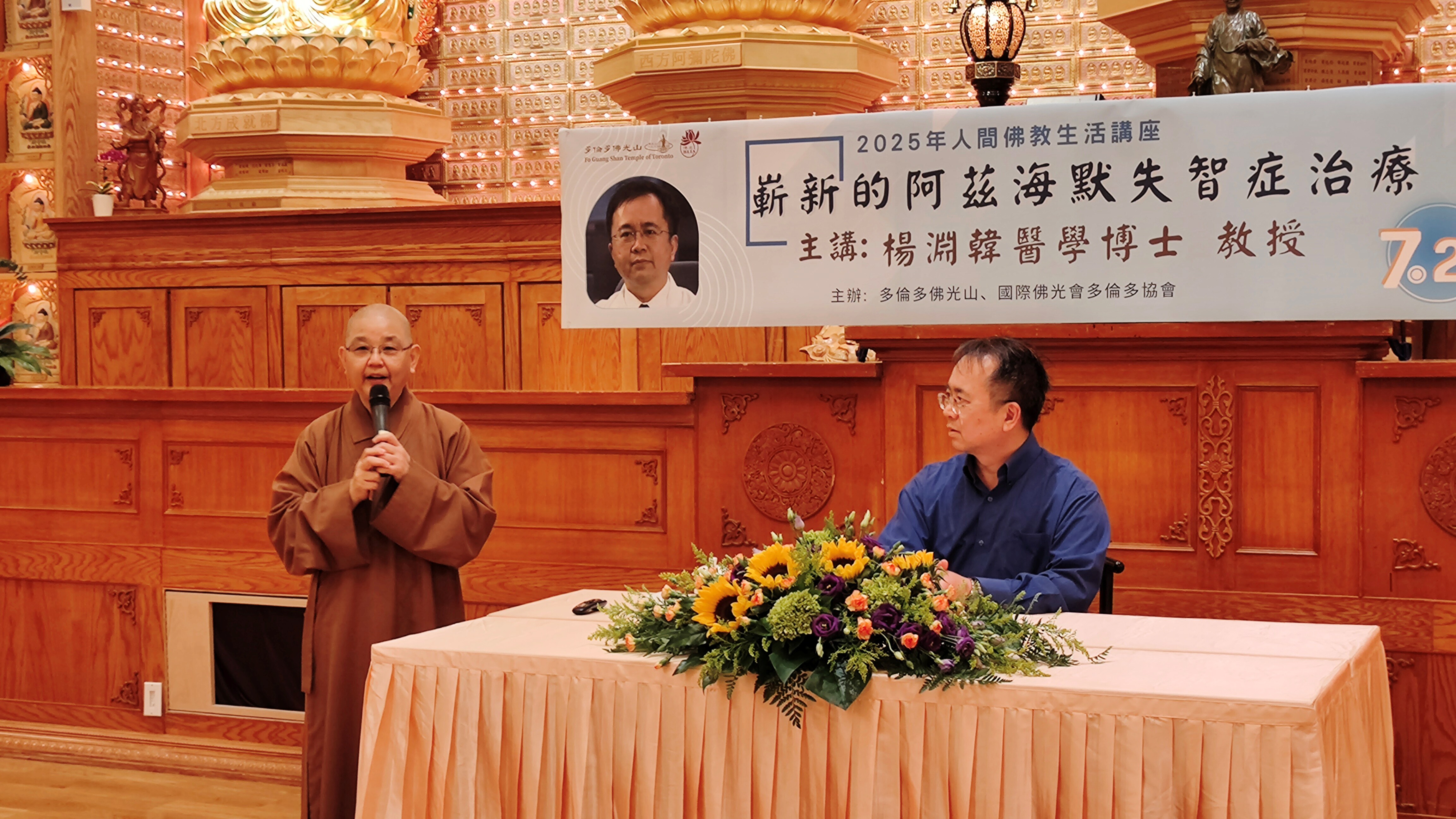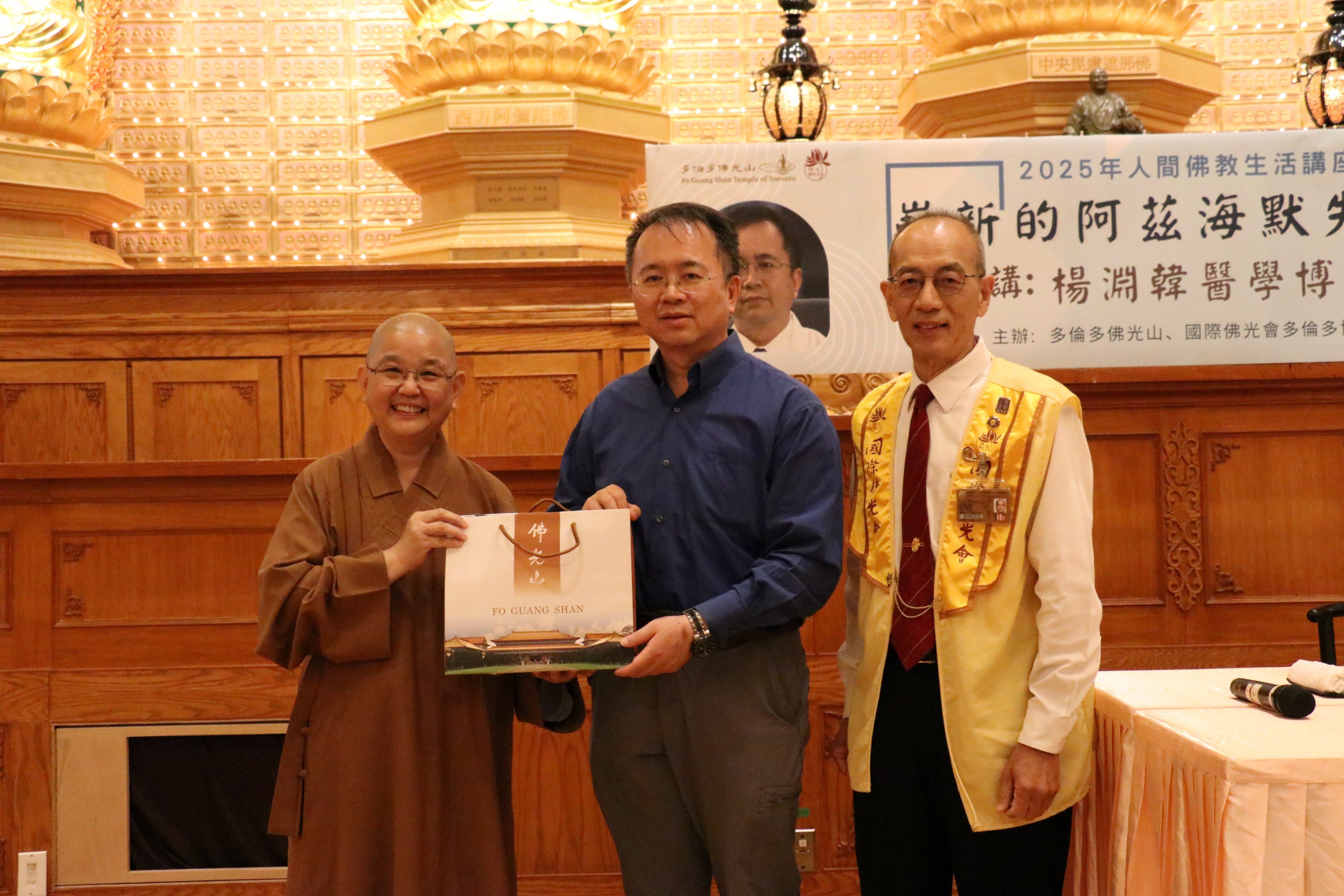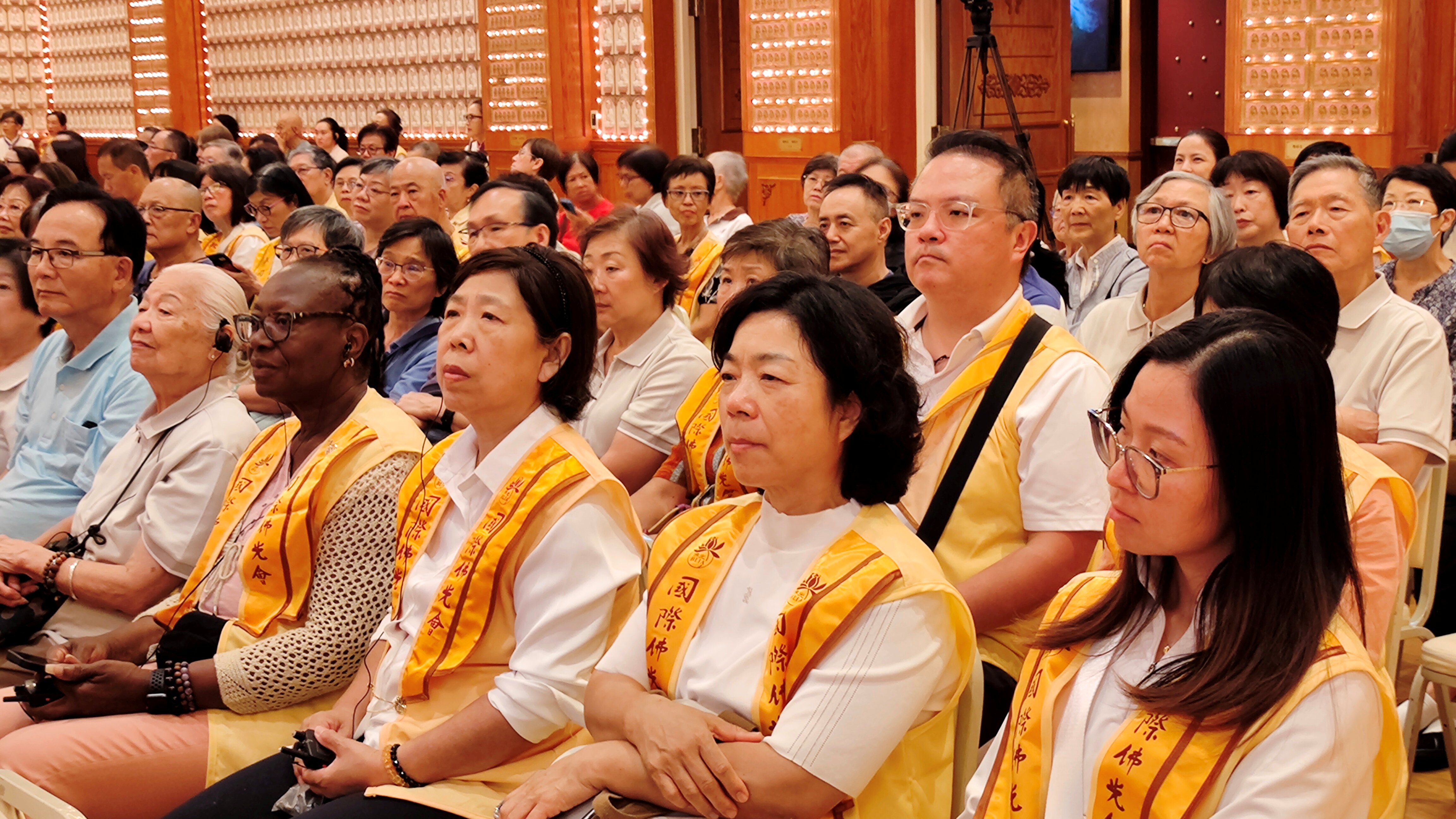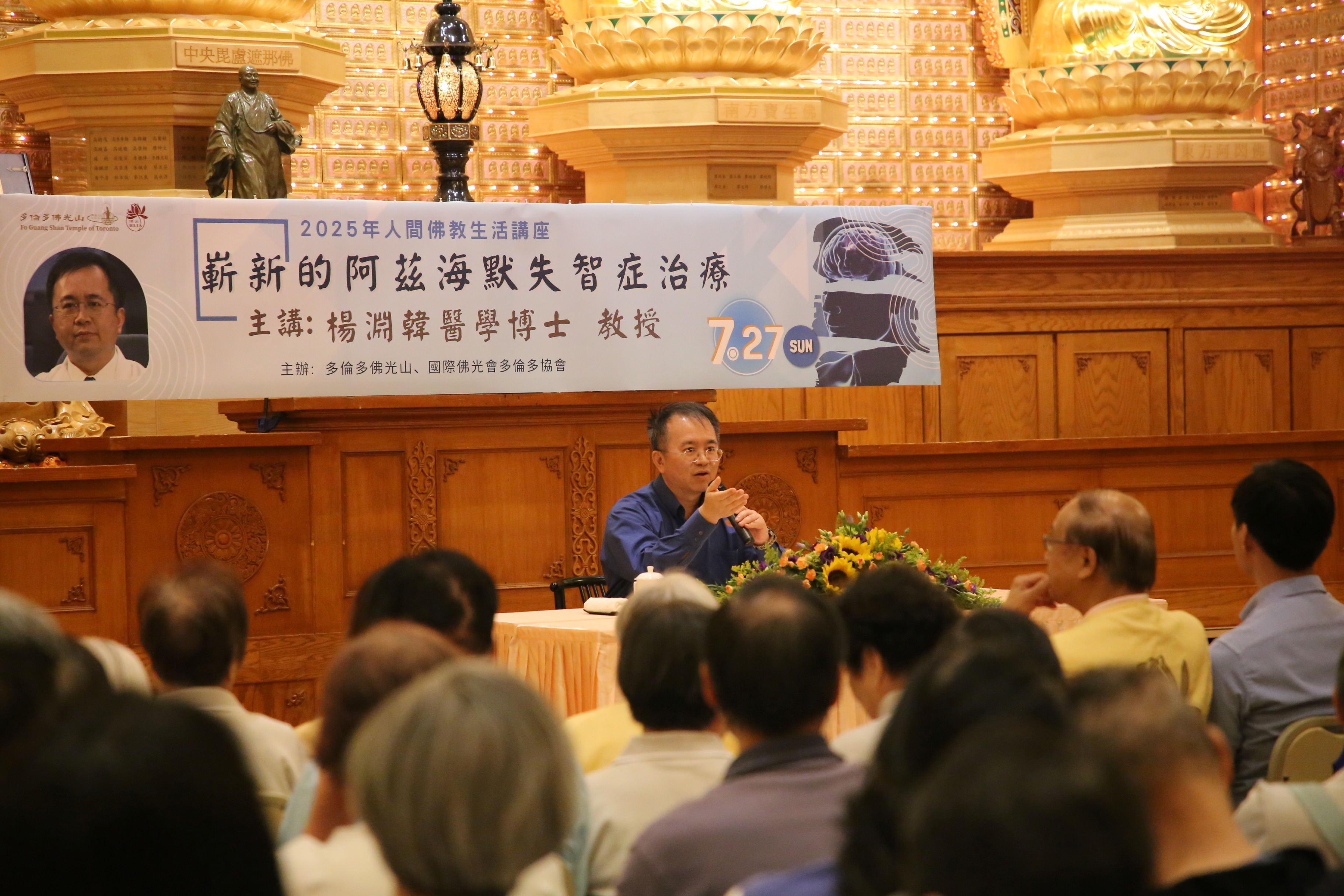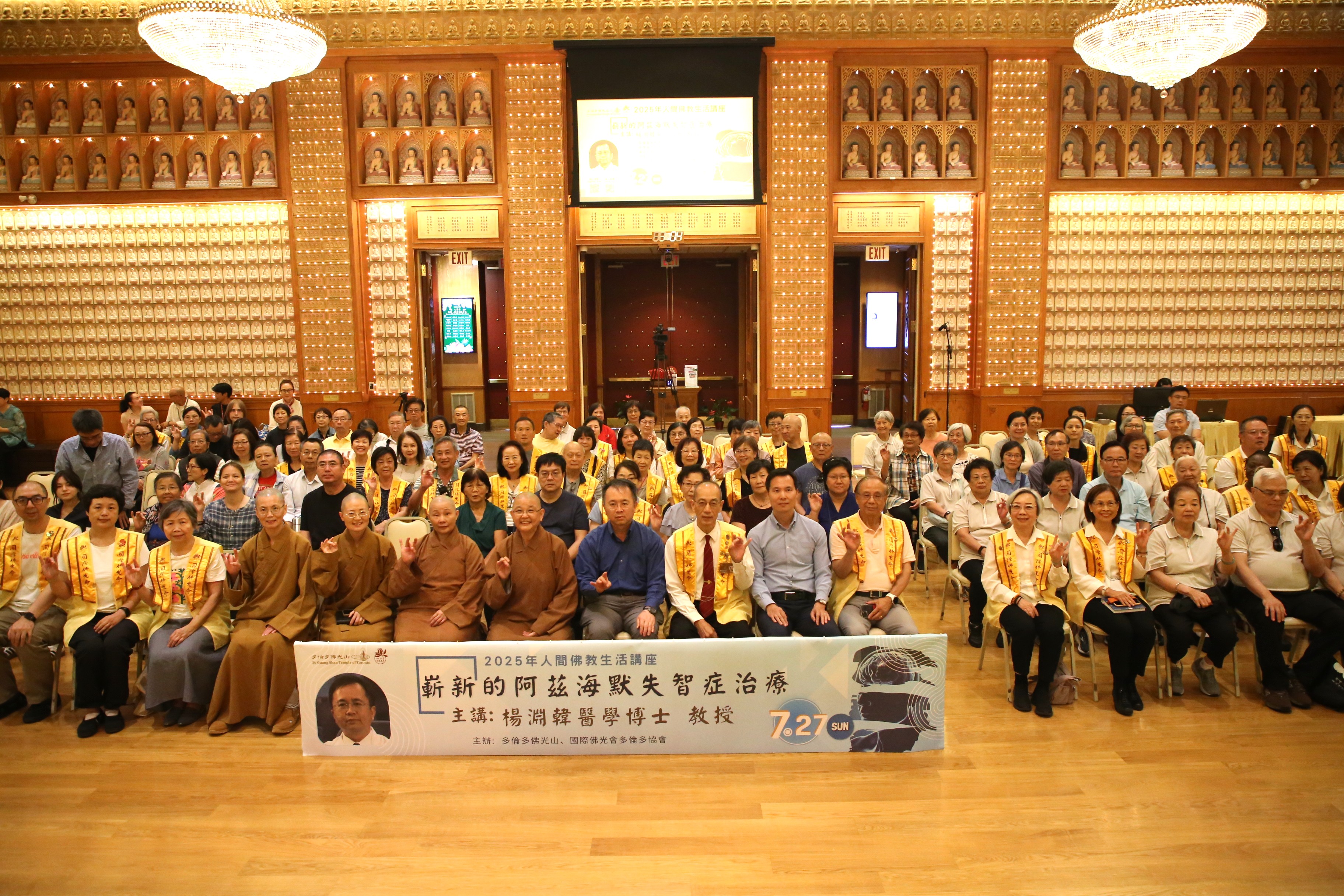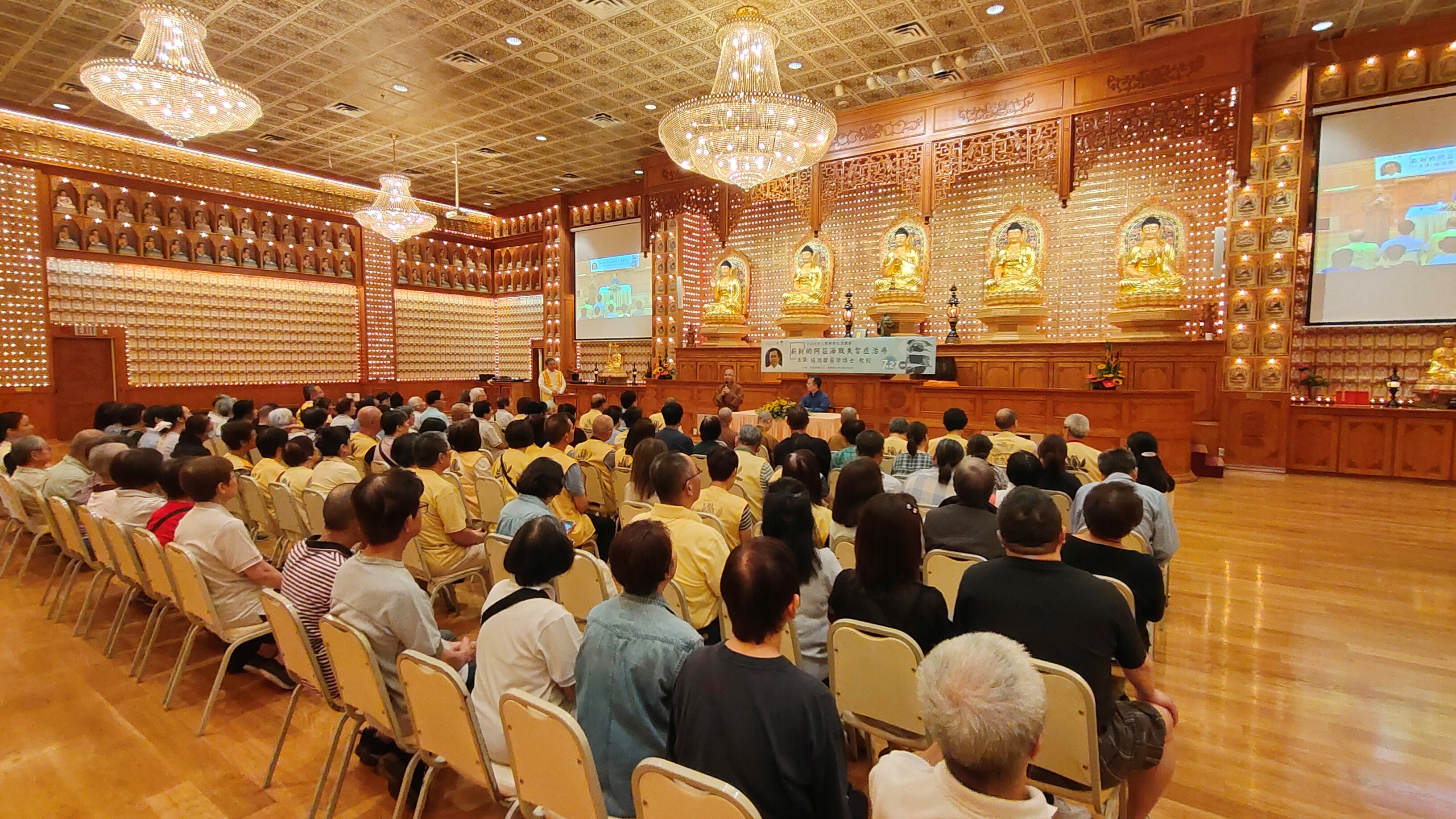
On July 27, Fo Guang Shan Temple of Toronto (FGS Toronto) welcomed Dr. Yuan-Han Yang, Director of the Neuroscience Research Center at Kaohsiung Medical University, to deliver a special lecture titled “Humanistic Buddhism Life Lecture –Innovative Treatments for Alzheimer’s Disease and Dementia.” Nearly 200 attendees joined both in person and virtually to gain insight into how lifestyle habits rooted in Humanistic Buddhism, such as volunteering, meditation, and calligraphy, can support cognitive health and delay the onset of dementia.
Returning to the temple after nearly 9 years, Dr. Yang emphasized that although dementia remains irreversible, proactive lifestyle changes can offer hope. Drawing on scientific research and clinical experience, he explained that engaging in meaningful activities not only boosts brain function but also provides emotional stability. These practices, he said, align closely with Buddhist teachings and are already reflected in the daily lives of many Buddha’s Light volunteers.
In her welcome remarks, Venerable Chueh Fan, Abbess of FGS Toronto, thanked Dr. Yang for sharing his professional knowledge and underscored the importance of dementia awareness in an aging society. The Abbess praised the long-term dedication of Fo Guang Shan volunteers and echoed Dr. Yang’s proposal to establish a “Cognitive Health Subchapter” at the temple, envisioning it as a platform to promote public education and benefit both individuals and communities.
During the lecture, Dr. Yang elaborated on dementia symptoms and risk factors. He introduced the AD8 screening tool as a quick and effective method for early detection, noting that a score of three or more indicates the need for medical consultation. He also explained that while only 45% of dementia risk factors are controllable, consistent management of health, such as monitoring blood pressure, diabetes, vision, hearing, and maintaining social connections, canmake a significant difference. In addition to conventional medications, here commended a “cocktail therapy” approach, combining pharmacological treatment with non-drug interventions like environmental adjustments, social engagement, and structured activities.
Dr. Yang further emphasized the long-term benefits of practices such as meditation, chanting, and calligraphy, which have been scientifically shown to improve brain function, though they may take several years to show effects. He introduced his newly published Guidebook for Non-Pharmacological Cognitive Health Interventions, now being promoted in Taiwanese schools andcommunities.
Inconclusion, Dr. Yang stressed that beyond caring for patients, supporting caregivers is an urgent need that both the medical and academic sectors must address collaboratively. He expressed hope that the Buddha’s Light International Association (BLIA) will extend its compassionate service into this field. He also highlighted that approximately 10% of adults over age 65 may have undiagnosed or unrecognized dementia. Looking ahead, Dr. Yang hopes that a future “Cognitive Care Team” can be established to widely disseminate accurate medical knowledge and promote early intervention in the broader community.

